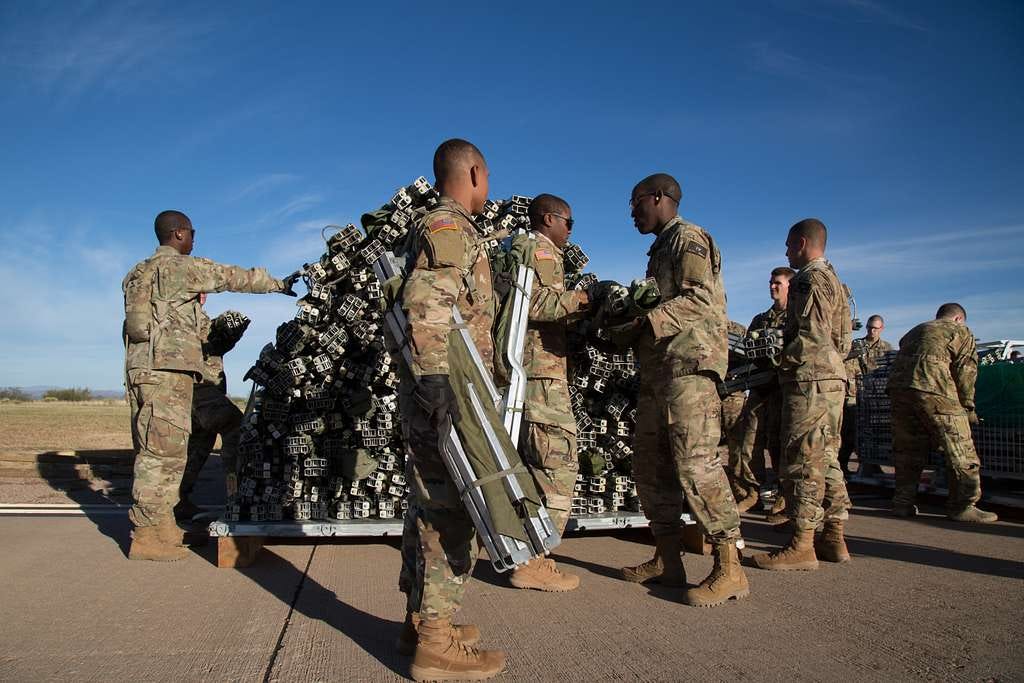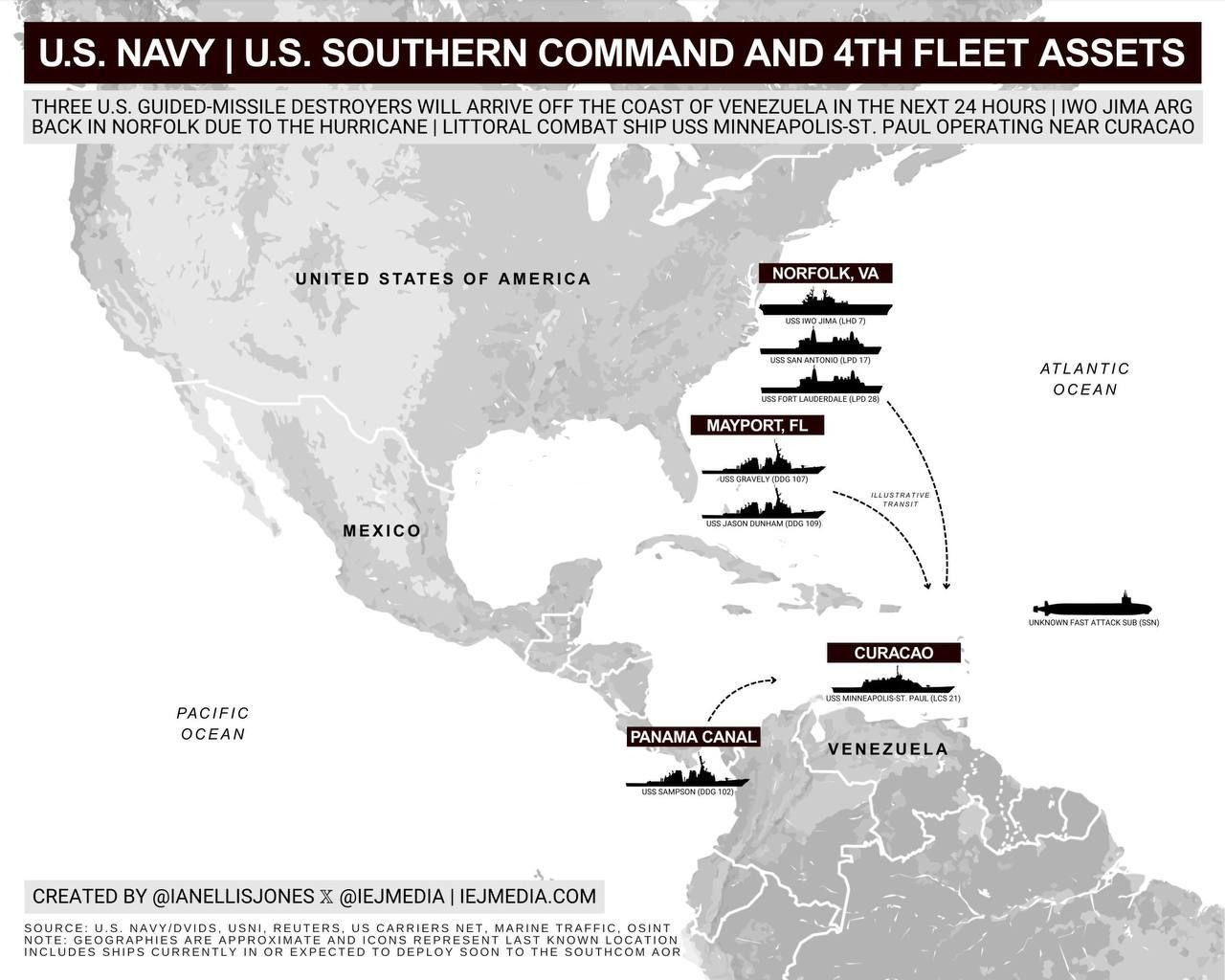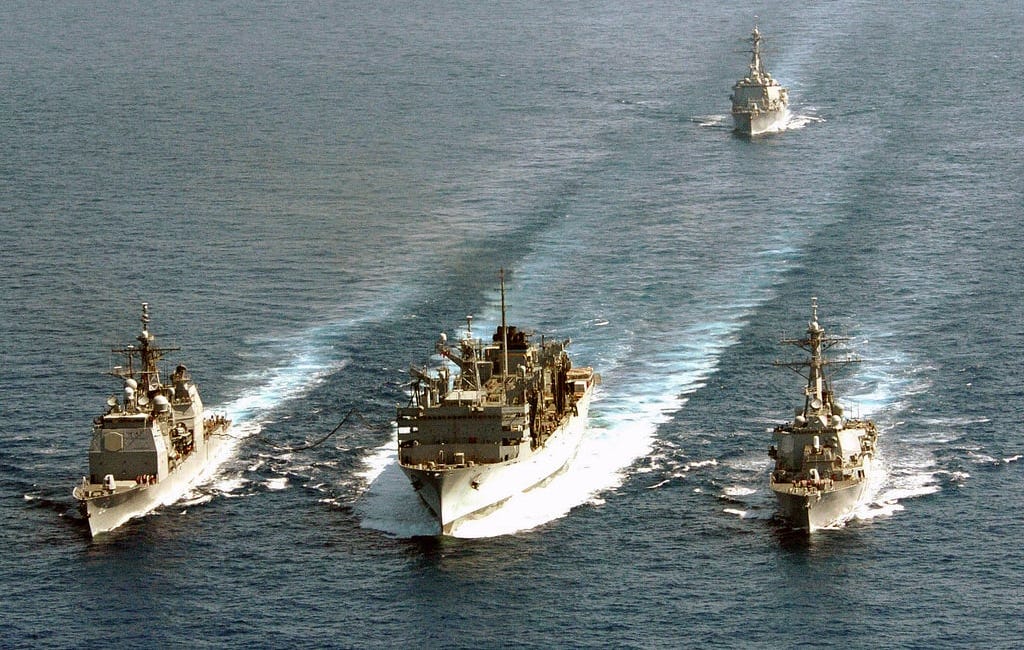Is Trump About to Start a War on the American Continent?
The drumbeat of escalation can be heard on the American Continent
Update: The standoff in the Caribbean turned deadly this week when a U.S. Navy destroyer struck a small vessel in international waters, killing eleven people. Washington insists the boat was tied to the Venezuelan gang Tren de Aragua, newly branded a foreign terrorist organization, and framed the attack as part of its counternarcotics mission. Trump himself released video of the strike, celebrating it as proof that traffickers will be “hunted down.” Venezuela, in turn, condemned the attack as an act of piracy and warned that the United States is laying the groundwork for open conflict.
The implications are stark. By expanding military action into international waters, the U.S. risks turning a tense standoff into a regional crisis. The strike gives Maduro more ammunition to rally militias and paint Washington as an invading force, while Trump’s base now expects further escalation against so-called terrorist groups in the hemisphere. With destroyers off Venezuela’s coast, militias mobilized onshore, and whispers of strikes in Mexico, the chance of a single misstep spiraling into open war is now greater than ever.
Original story: Donald Trump has never been shy about flexing American power, but the past two weeks have pushed that bravado into something darker. Three U.S. Navy destroyers now sit off Venezuela’s coast. Venezuela responded by mobilizing its militia, warning that Washington is preparing an invasion. The Pentagon insists this is about drug cartels, but the deployment looks like the start of a regional showdown.
The ships involved, the USS Gravely, USS Jason Dunham, and USS Sampson, are designed for high-intensity conflict, capable of firing Tomahawk missiles and controlling entire stretches of sea. Sending them south is less about intercepting cocaine shipments and more about sending a signal that the United States is prepared for escalation
.
Trump has tied these deployments to his administration’s decision to designate Tren de Aragua and other Latin American groups as foreign terrorist organizations. That move expands the Pentagon’s legal authority to act, but it also locks Washington into a dangerous corner. Once enemies are labeled as terrorists, any restraint in military action looks like weakness to Trump’s base.
Nicolás Maduro, ever the populist, has seized on the deployments as proof that Venezuela is under siege by imperial forces. He ordered a massive militia mobilization, millions of civilians armed with rifles and told to prepare for an invasion. What might begin as posturing can become a firefight with a single miscalculation.
Strikes Inside Mexico?
Alarming are reports that Trump has quietly signed a classified directive authorizing strikes against cartel targets in Mexico without Mexican government approval. Mexico’s President Claudia Sheinbaum has been blunt: there will be no U.S. military presence on Mexican soil. If Trump ignores that line, the fallout will be catastrophic. Not only would it shred U.S.–Mexico cooperation on intelligence and migration, it would destabilize Mexico’s internal politics. For a president who claims to champion sovereignty at home, violating another nation’s sovereignty would be both hypocritical and reckless.
Legally, Trump would be venturing into forbidden territory. Article 2(4) of the United Nations Charter prohibits the use of force against another state’s territorial integrity. Within the Organization of American States, the framework for military action is collective, not unilateral. Domestically, the War Powers Resolution requires notification within 48 hours and congressional authorization after 60 days. Trump has already shown contempt for legal guardrails, and there is no reason to believe he would treat these any differently. What is far more likely is a deniable strike: special operations teams, drones, or standoff weapons aimed at high-value cartel leaders. Each carries a huge risk of civilian casualties, retaliation from armed groups, and a nationalist backlash across Mexico.
Venezuela on a Hair Trigger
The situation in Venezuela is a powder keg. Washington insists the deployment of destroyers and surveillance aircraft is a counternarcotics mission. Yet the assets on station tell a different story: guided-missile destroyers, P-8 reconnaissance planes, and even a submarine prowling Caribbean waters. These are instruments of war.
US Warships Head To Venezuela as Maduro Mobilizes Militias and Bans Drone Flights
The standoff between the United States and Venezuela is entering a dangerous new phase. Three U.S. guided-missile destroyers are now stationed near Venezuelan waters, a move Washington claims is part of its fight against Latin American drug cartels. At the same time, the
Venezuelan radar operators are on constant alert, militia units are drilling near the coast, and state media is preparing the public for a possible clash. The more crowded the skies and seas become, the higher the chance of an accident. One radar lock-on, one misinterpreted maneuver, and shots will be fired.
Maduro, like Trump, thrives on confrontation. Both men use external threats to justify domestic failures. Maduro’s collapsing economy and Trump’s mounting scandals make them natural foils for one another, each presenting the other as the villain. The reality is that neither side has much room to back down without losing face. That dynamic creates a trap, one in which military escalation is more likely to occur by accident than by design. And once it starts, it will be difficult to stop.
The Epstein Factor
All of this unfolds against the backdrop of Trump’s domestic nightmare: the Epstein files. A federal judge has ordered the release of more than 100,000 pages of government documents related to Jeffrey Epstein. Trump’s Justice Department has already been accused of slow-walking disclosure, and the pressure is mounting. The potential for politically devastating revelations is real, and it gives Trump every incentive to change the subject. The timing of these military escalations cannot be ignored.
Political scientists call this diversionary conflict, the tactic of starting a foreign crisis to distract from domestic scandal. Historically, the evidence is mixed. Some leaders gain short-term approval boosts, but most find the gambit backfires if the conflict drags on. For Trump, who lives off daily news cycles and thrives on chaos, even a temporary diversion might be enough. He has the motive to look for a foreign distraction, the military means to create one, and the recklessness to gamble on it.
There is no war today. But the ingredients are assembled: secret strike planning in Mexico, warships circling Venezuela, a president under siege at home, and another desperate strongman clinging to power. The American continent has not seen a major interstate war in generations. Trump may be dangerously close to breaking that streak, not out of strategy, but out of vanity and desperation.





